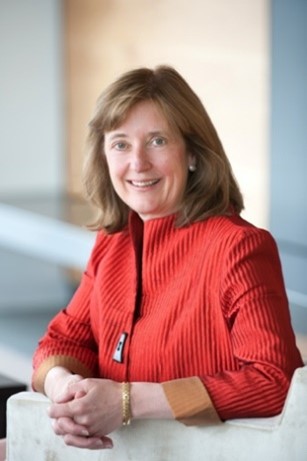We talked to Janis Orlowski, MD, MACP, former AAMC chief health care officer, about why the AAMC launched VaccinesVoices and why boosting vaccine confidence among health care personnel — and making sure they can get vaccinated — is critical.
What do you want leaders in academic medicine to learn from this effort?

We have a significant problem as it concerns health care personnel — many are still reluctant to get vaccinated against COVID-19. Our people on the front lines are figuring out how to change this reluctance and to bring confidence to it. And by learning from each other — what’s working and what isn’t — we can win.
It’s a huge challenge. Academic medical centers have never before been part of an effort to vaccinate practically every person in the nation, in large part with a new type of vaccines — mRNA vaccines — that we have never used before. Not only is the scale of the vaccination effort unprecedented for academic medicine, but most people will have to get two doses of vaccine within a relatively short period of time. There also are logistical issues, such as issues of tracking, that health care institutions have never confronted before.
But academic medical centers are dedicated to their communities, to stepping up when called upon, and to trying new things and finding better ways to protect people’s health. As a group we’re rising to the challenge, and this website is designed to help AAMC members do that, starting by sharing the tools, knowledge, and practical ideas we need to vaccinate our own workforces.
What do we know about health care personnel and vaccine access and confidence?
Some health care personnel are taking the vaccines readily, and others aren’t. We can’t assume that because someone is in the health care field they will automatically be accepting of the COVID-19 vaccines. Here’s an example of the kind of sharing that can help institutions build confidence: The chief medical officer of University of Utah Health, Thomas Miller, MD, told me that the vaccine acceptance rate of his institution’s non-physician health care personnel was 30% to 40% at the beginning of 2021. With town hall meetings and education sessions that addressed legitimate concerns and with a diverse group of spokespeople providing direct and honest answers, the share of vaccinated personnel rose to over 80% by early April 2021. And they continue to work to improve vaccine acceptance.
The truth is, people have questions about the COVID-19 vaccines, even people who work at health care institutions. I’m a practicing nephrologist, and I spent 45 minutes with my own staff recently, answering questions about the vaccines. We have to respect staff members’ questions and concerns and respond honestly to help them get the answers they need to accept the vaccines.
Academic medical centers also need to be sure to give employees time off to get vaccinated and to recover from side effects if necessary, just as we are encouraging other employers to do. We have to set an example that people need time to be well.
Why is it important to make sure every member of the health care workforce has confidence in the COVID-19 vaccines?
First off, some people outside the medical field don’t want to be “the first” to get vaccinated. They want to see if doctors, nurses, and other health care personnel are accepting the vaccines. They’re looking to us for leadership in this area.
In addition, for academic medical centers to be safe environments for patients, they have to get to herd immunity within their own walls. If someone is coming in for routine care, we don’t want them to have to worry about catching COVID-19 from someone who works there. People need to be able to trust the safety of the health care system. Safety must be our number one priority.
We also need to protect health care personnel — who have been heroic during this pandemic — and their families. We have tragically lost some health care personnel to COVID-19, while others have taken the infection back to their families. Vaccinating health care personnel will save lives and protect those we love.
And finally, states are looking to academic medical centers to help them roll out the vaccines across their populations. The president and CEO of Indiana University Health, Dennis Murphy, MD, told me it’s important that his staff demonstrate confidence in the vaccine as they go to rural sites in Indiana to work to administer vaccines to everyone in the state.
What final thought do you want to leave your academic medicine colleagues with?
We have stories to tell, and we can learn from each other. The expertise to do this resides in all our institutions. Recently I spoke to Marc Boom, MD, CEO of Houston Methodist, which has become one of the first academic medical centers and first hospitals to mandate vaccines for all health care personnel. Dr. Boom identified his institution’s commitment to safety for the community and says his workforce has joined him in addressing the mandate. Academic medical centers have to continue to educate and answer questions, use strategies that reach their employees, give time off to get vaccinated, and so on. Let’s share what we know to get this under control. We have to keep going until everyone is vaccinated.